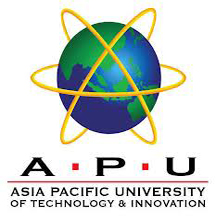B.ENG (HONS) IN ELECTRICAL & ELECTRONIC ENGINEERING
- Field Of Study:
- Engineering
- Level Of Study:
- Undergraduate
- Course Subject:
- Engineering - Electrical/Electronics
- Course Intake:
- April, August, January, May, October
B.ENG (HONS) IN ELECTRICAL & ELECTRONIC ENGINEERING
This programme is specifically designed to provide:
- High-quality undergraduate engineering education by providing students with a curriculum that is firmly grounded in electrical & electronic engineering fundamentals.
- A study in both the areas of electronics fundamentals as well as electrical power systems including the areas of generation, transmission and distribution of electrical energy.
- The technical skills required for the application in the fields of communication and the IT industry through a well balanced curriculum which includes the study of signals and computing.
PROGRAMME EDUCATIONAL OBJECTIVES
- Be working as a practicing professional engineer in the field of Electrical and Electronics Engineering.
- Have progressed in their Electrical and Electronics Engineering careers or other chosen profession and/or are engaged in advanced studies in Electrical and Electronics Engineering or other related fields.
PROGRAMME OUTCOMES
The students, upon completion of their study, should attain the following outcomes:
- Ability to gain and apply basic principles of Mathematics, Science and Engineering.
- Ability to identify engineering problems and apply basic engineering principles to solve them.
- Ability to recognize and apply suitable tools and techniques for engineering practical applications.
- Ability to investigate complex engineering problems using research techniques.
- Ability to design solutions for complex engineering problems.
- Ability to communicate effectively and professionally.
- Ability to comprehend and demonstrate current good practices of engineering for sustainable development.
- Ability to practice safety, health, social, cultural, legal and environmental responsibilities as an engineer.
- Ability to execute the responsibilities of an Engineer professionally and ethically.
- Ability to function effectively as an individual or in a team.
- Ability to recognize the need for, and be able to engage in independent and life-long learning
- Ability to demonstrate and apply the knowledge and understanding of engineering management principles.
Year 1
These modules provide an appropriate platform for an Engineering Professional to understand the basic principles of engineering in the areas of Circuit Analysis, Engineering Materials, Engineering Statics and Dynamics and Engineering Design.
In addition, a thorough grounding in principles of IT and management are provided by the Programming and Management modules. Modules such as Engineering Mathematics and Introduction to Management provide the basic academic skills required to meet the demands of employers. Important and relevant skills for managing activities and for your own independent learning are also introduced.
Common Modules
- Analysis of Circuits
- Engineering Materials
- Introduction to Management
- Engineering Statics and Dynamics
- Engineering Mathematics 1
- Introduction to C Programming
- Engineering Mathematics 2
- Instrumentation and Measurement
- Engineering Design
- Three (3) MQA modules applicable only to Malaysian students
MQA Modules
- Bahasa Melayu (Malay Language)
- Pengajian Malaysia (Malaysian Studies)
- Pendidikan Moral (Moral Studies); or Pendidikan Islam (Islamic Studies)
Year 2
Here, you start specialising in modules that develop the necessary underlying knowledge and skills in Electrical and Electronics Engineering. Further, in-depth Electrical and Electronic skills are developed here with modules such as Electromagnetic Field Theory, Engineering Software and Applications, Analogue Electronics, Digital Electronics, Signals and Linear Systems, Electrical Machines 1 & 2 and Electrical Power Utilisation. Engineering Mathematics is provided for the better understanding of the engineering modules. Independent learning continues in all modules.
Common Modules
- Analogue Electronics
- Engineering Mathematics 3
- Electromagnetic Field Theory
- Digital Electronics
- Engineering Software and Applications
- Signals and Linear Systems
Specialised Modules
- Electrical Machines 1
- Electrical Power Utilization
- Electrical Machines 2
Year 3
Specialised knowledge and skills in the areas of Control Engineering, Communication Engineering Principles, Multimedia Applications, Computer Architecture, Microprocessor Systems and Embedded Software, Numerical Methods & Statistics, Power Electronic and Drives, Power System Analysis and Generation, Transmission and Distribution of Electrical Power are a critical focus of this level. There is further development of the ability to apply relevant engineering skills with strong critical thinking and analysis.
Common Modules
- Control Engineering
- Communication Engineering Principles
- Multimedia Applications
- Computer Architecture
- Numerical Methods & Statistics
- Microprocessor Systems and Embedded Software
- Digital Signal Processing
Specialised Modules
- Power System Analysis
- Generation, Transmission and Distribution of Electrical Power
- Power Electronics & Drives
Internship
Industry placement with a suitable organisation for a minimum period of 12 weeks, after completing Year 3 and before the commencement of Year 4.
Year 4
The final year Engineering modules provide the necessary industry application technological skills which will become very useful for employment upon graduation. These modules include, VLSI Design, Analogue Integrated Circuits and Systems, and High Voltage Engineering. Your personal and professional development is enhanced by the module in Engineer in Society and Engineering Project Management. You will enhance your technical capability and understand how to innovate, generate and manage the creation of new ideas.
The Project Phase I (Investigation) in Electrical and Electronics Engineering will enable students to take on R&D with commercialisation. The Electrical and Electronics Engineering Project Phase II (Implementation) also develops the academic and practical aspects of your chosen areas of study and reinforces your independent learning skills. This is where you will demonstrate higher level critical thinking, analysis and solutions development skills which will enhance your employability.
Common Modules
- Engineering Project Management
- Project Phase I (Investigation)
- Project Phase II (Implementation)
- Engineer in Society
Specialised Modules
- High Voltage Engineering
- VLSI Design
- Analogue Integrated Circuits and Systems
Source: Asia Pacific University
